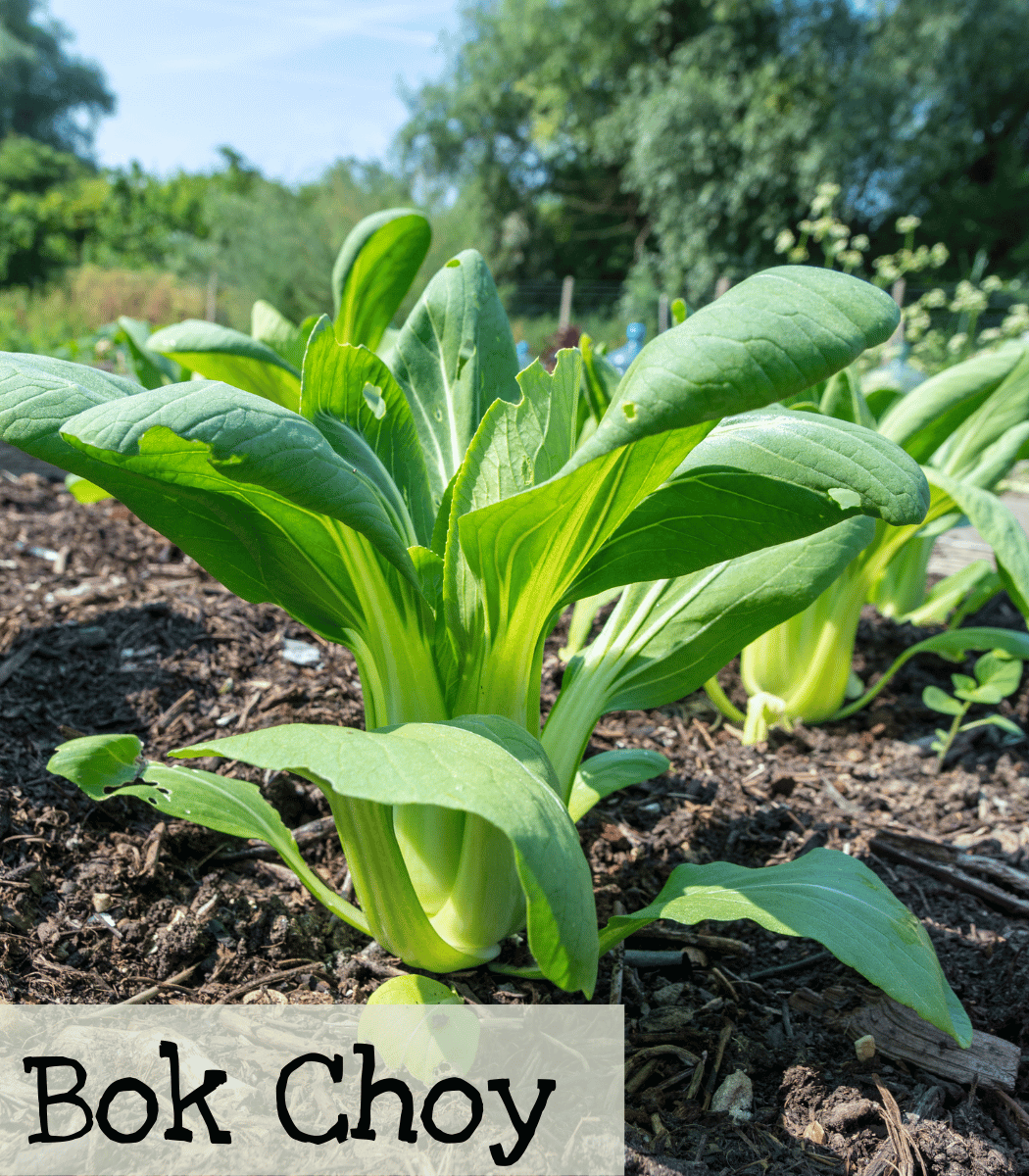
Bok Choy
Bok Choy is often used in Asian cuisine. A member of the brassica family this cabbage is good in stir-fries and salads.
|
Baby Choi; Milk; Purple Lady; Pak Choi (Chinese Cabbage) |
|
Brassica rapa
|
|
Intermediate |
|
Intermediate |
|
4 years if properly stored |
|
Biennial |
|
7-14 days |
|
None |
|
1/4 inches |
|
14” tall x 10-12” spread Baby Choi: 18-20” tall x 12” spread Hedou Tiny: bite-sized |
|
Full sun to part shade |
|
Pak Choi: cold-tolerant No, for the other 3 varieties |
|
Baby Choi: 50 days Milk: 30 days Pak Choi: 50 days Purple Lady: 45 days |
|
February, July, August |
|
Yes |

Growing Tips


When to Start
Spring: Start indoors about 6-8 weeks before the last frost date. (Late January-Early March GA)
Spring Transplant: After the danger of frost has passed. (Mid-March through the end of April for GA)
Fall: Start 14-16 weeks before the first frost date. (End of July through Mid-August for GA).
Fall Transplant: About 8 weeks before the first frost date (September for GA).
How to Start
Start indoors about 6-8 weeks before the last frost date. Using sterile, pre-moistened seed starting mix, sow seeds to a depth of ¼ inches in seed cells. Then place the cells/pots under grow lights and pot up as needed. Transplant after hardening off and space to 12-24 inches apart. Plant in part shade to full sun beds.
For fall plants, start indoors 14-16 weeks before the first frost date. Transplant after hardening off 8 weeks before the first frost date. Fall plants can be planted in full sun.
Use succession planting for a continual harvest. Transplant seedlings every week to every other week. If you plan on doing this, try using succession planting from the beginning. Sow seeds every week to every other week. This will help ensure your seedings will not all be ready for transplant at the same time.
Care
Bok Choy is a cool-season crop that is prone to bolting in hot weather. This can be particularly challenging for spring plantings in GA.
To further discourage bolting as a spring crop, try planting in part shade or use shade cloths for plants in full sun. Pests can be a problem, try using row covers to keep pests out.
Bok Choy likes rich, well-draining soil. Use row covers to protect from any unexpected freezes. Mulch to help keep the ground moist and cool. Keep the plants well-watered during dry periods to promote rapid, uninterrupted growth. If slug and snails are a problem, try using egg shell barriers.
Harvest
Harvest heads when they become firm. Cut the stems at the soil level and remove the outer leaves.
Harvest Choy Sum 50 days after starting just like other Bok Choy. The flowers and stocks are considered a gourmet delicacy.
How to use
Enjoy fresh, boiled, sautéed, steamed, or stir-fried. Ideal for salads and soups.
Seed Saving

Isolation Distance
Insect-dependent and biennial, bok choy will cross with other Brassica rapa like cabbage and turnips. Separate by 1 mile for reliable distance isolation. Allow seeds to mature and dry on the plants before harvesting. Seeds will develop in the 2nd year.
Instructions
Select the plants to allow to go to seed. Allow seeds to dry on the plant before harvesting. Store them in a dry place and wait until they are thoroughly dry.
Seeds and finer chaff are easy to separate by a variety of methods. One way is to use two screens of varying mesh, one a little smaller than the seeds and the other a little larger. The first screen lets anything smaller than the seeds fall through, and the second lets the seeds through and stops anything larger.
Features
- Baby Choi: Fast-growing, small heads that have tender green leaves.
- Milk: Heirloom. Flavorful and juicy, it has ivory stems with green foliage. Single-serving sized.
- Pak Choi (Chinese Cabbage): A variety of white celery mustard that resembles Swiss Chard. It has thick leaves, is cold-tolerant, and is a slow bolter.
- Purple Lady: Heirloom. A baby bok choy with purple leaves.

Bok Choy are biannual. They will flower and produce seeds in the second year. They require vernalization (the process of overwintering).
Sources:
Gardeningknowhow.com
